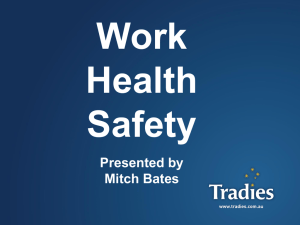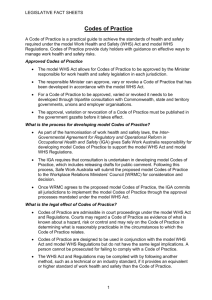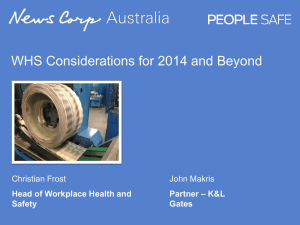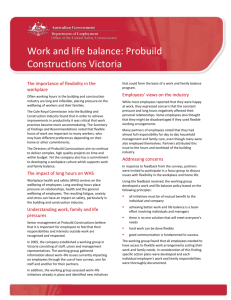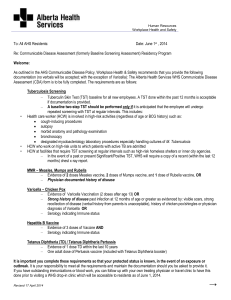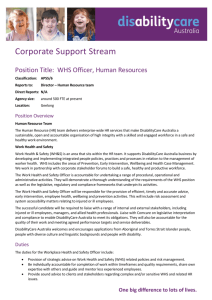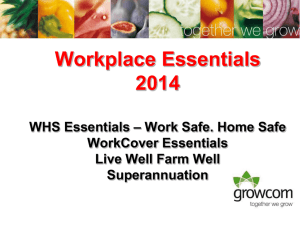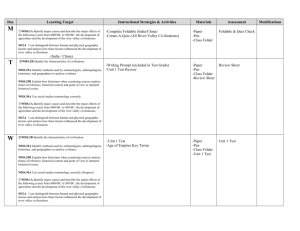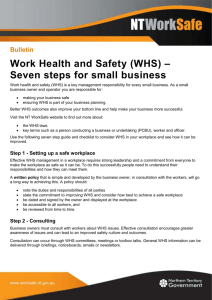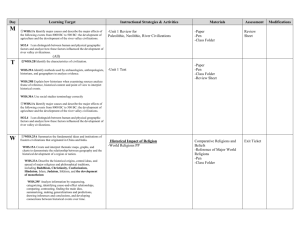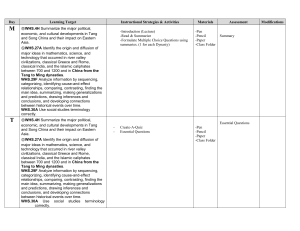What is WHS?
advertisement
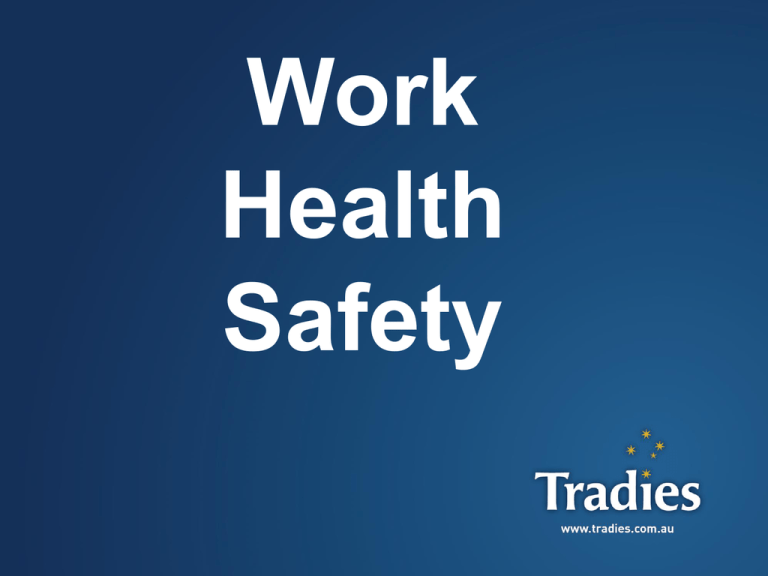
Work Health Safety 1 What is WHS? The WHS Act 2011 replaced the Occupational Health and Safety Act 2000… WHS came into legislation from January 2012 • WHS is now a National Act that covers all states - Previously the OHS Act was State by State - Meaning each State had a different set of rules • WHS now puts more responsibility on the worker to act in a safe manner & follow safe work procedures 2 Understanding WHS Legislation Definitions Workers: includes employees, labor hire staff, volunteers, apprentices, subcontractors and contractors. PCUB: Persons conducting a business or undertaking Officer: Officer is defined under the Corporations Act 2001, sect 9 "a person who makes or participates in making decisions that affect the whole or a substantial part of the business or undertaking" 3 Understanding WHS Legislation There are two main parts to new WHS Legislation… Primary Duty of Care & Due Diligence Directors – Duty of Care The Directors ‘Officers’ set aside a budget for WHS, to be used for the following: • Provision of resources (physical, financial and human) to ensure a safe and healthy workplace • Provision of information and publications relating to WHS • Maintenance of the built environment of the workplace including the immediate assessment and control of any identified hazards 4 Management – Duty of Care The General Manager & Senior Managers are responsible for the WHS of all employees and may be classified as ‘Officers’ of the company. Whilst Management may delegate some WHS duties, they acknowledge that they are accountable for the operational implementation of all aspects of the Club’s WHS system. Some key responsibilities include: • Supervision, Training, and providing safe systems of work • Maintain compliance with WHS Legislation • Keep records of all injuries in the Incident Register • Conduct or delegate to staff member/s regular workplace inspections and risk assessments 5 Duty Managers & Supervisors – Duty of Care Are defined as ‘Middle Management’ & as such are classified as ‘Workers’… Some key responsibilities include: • Completing the Incident Register and report the incident to Management • Investigate incidents as required in accordance with workplace policy and legislation • Reporting any unsafe work practices to Management • Ensuring that all employees are working in a safe manner. 6 Staff – Duty of Care All Staff are advised of their respective WHS responsibilities during staff induction and on-the-job training. Responsibilities are included in job descriptions. • Observing safety rules, working safely and reporting any hazards and incidents immediately. • Following the safe work Policies and Procedures • Maintaining high standards of housekeeping at all times. 7 Nature of operations risks and hazards Resources and processes Due Diligence Knowledge of health and safety matters ‘Officer’ Legal compliance Timely response to incidents and issues 8 WHS Committee Members Meet monthly to discuss the following… • Incident Reports • Safe Work Policies & Procedures • Review Work Place Inspections If you would like to join please notify Joshua McAleer 9 EVACUATION What will you hear? Beep Beep and/or Whoop Whoop What Will you do? Stay Calm, Move to nearest safe emergency exit. Where will you go? Lancashire Pl 10 Important points to remember: • • • • Incident books are kept in all work areas, usually in the bar – they are a small note pad with yellow, green and pink forms. Report all hazards as well as incidents to your immediate supervisor. Each work area has its own Safe Work Statements. You will be asked to read and sign the Safe Work Statements as you are trained in that area. Following these statements ensures the health and safety of you and those around you as you work. If you have any questions regarding Work Health Safety at Tradies, please see Josh McAleer or email joshmc@tradies.com.au. 11
